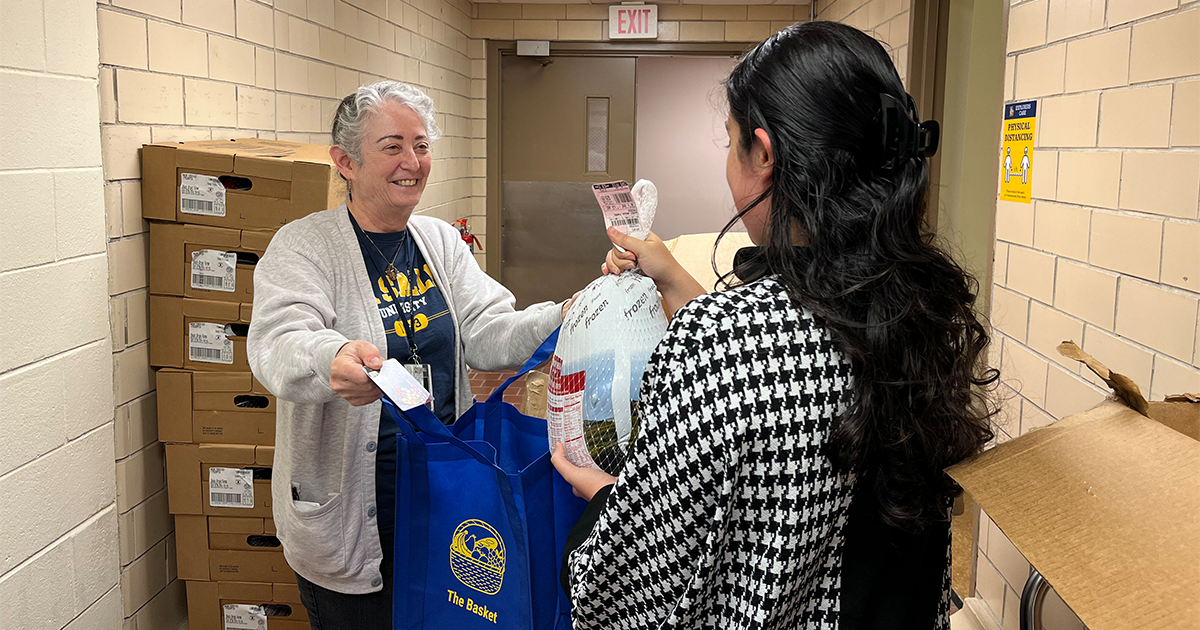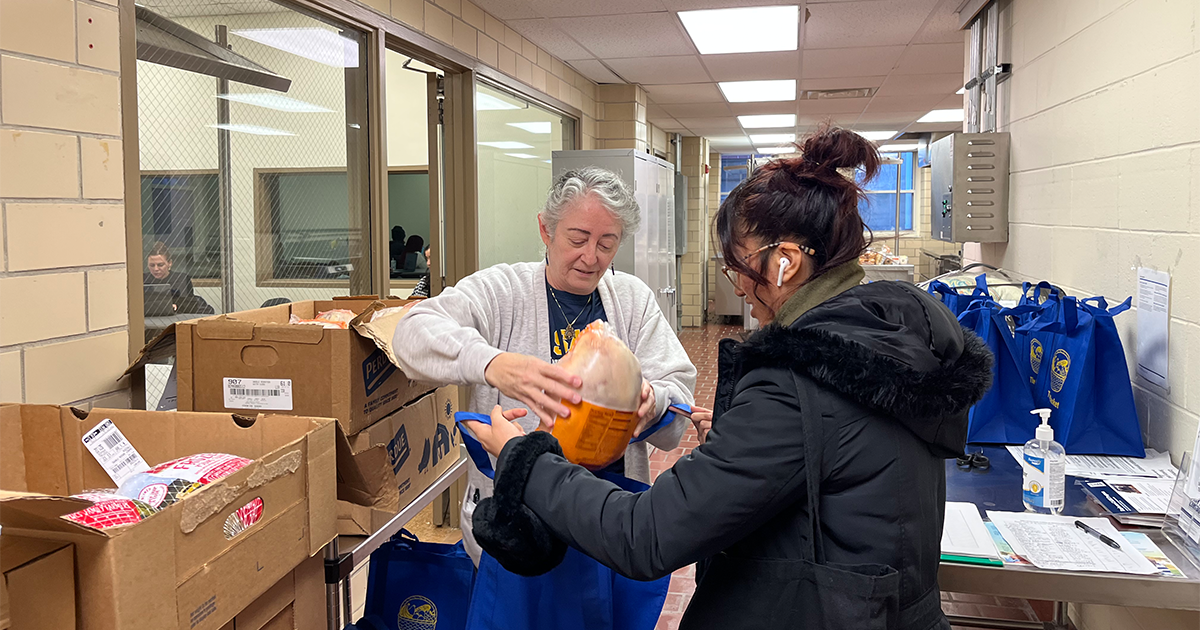La Salle University
Meeting students’ basic needs, at La Salle and across Pennsylvania

The Commonwealth of Pennsylvania designated La Salle a member of its newly created Hunger-Free Campus initiative.
The Commonwealth of Pennsylvania has named La Salle University to its inaugural Pennsylvania Hunger-Free Campus initiative.
La Salle joins a cohort of colleges and universities that are equally focused on addressing hunger and other basic needs of their students, while creating opportunities for connection among like-minded advocates, providing campus resources and strategies, and supporting grant opportunities to address food insecurity.
The development of its Pennsylvania Hunger-Free Campus initiative is rooted in the Commonwealth’s effort to reduce and possibly eradicate food insecurity on college and university campuses. According to data collected by the Commonwealth, more than one-third of Pennsylvania college students could not continue their education during the pandemic due to food insecurity. More than 50% in Pennsylvania cited food or housing insecurity in 2020.
Since its opening in 2019, The Basket has served more than 3,000 student visitors and distributed more than 45,000 pounds of food. The Basket also employs students through grant and work study funds and provides internship, practicum and service-learning hours to students in a range of majors.
“We are incredibly proud to earn this designation from the Commonwealth of Pennsylvania, which demonstrates our commitment to supporting La Salle students and meeting their fundamental needs,” said Laura B. Frank, Ph.D., director of La Salle’s campus food pantry The Basket and professor of nutrition at La Salle University’s School of Nursing and Health Sciences. “Joining a cohort of institutions aimed at combatting student basic needs insecurities on campuses across Pennsylvania will provide us with access to tools, resources, and grant opportunities that prioritize the health, well-being, and success of our students, whether here at La Salle or elsewhere in Pennsylvania.”
In January 2023, La Salle was awarded a $40,000 grant from the PA Hunger-Free Campus program—the maximum award for which the University was eligible.
La Salle addresses food insecurity by providing direct food assistance to students through multiple avenues.
Campus food pantry The Basket stocks canned and packaged foods, plus fresh produce and dairy; fresh and frozen meat, poultry, and seafood; and personal care items. All students can access The Basket, which remained available throughout the pandemic, by using their La Salle ID.
Since its opening in 2019, The Basket has served more than 3,000 student visitors and distributed more than 45,000 pounds of food. The Basket also employs students through grant and work study funds and provides internship, practicum and service-learning hours to students in a range of majors.
The Basket receives food donations from campus partners and external partners. Agency partner Philabundance, a nonprofit food bank that serves Philadelphia and the greater Delaware Valley region of Southeastern Pennsylvania, directly provides food to La Salle and also connects The Basket with excess groceries from the neighborhood Fresh Grocer location through its Retail Rescue program.

In late October, La Salle and The Basket received a $10,000 grant from the Leo & Peggy Pierce Family Foundation, a Philadelphia-based nonprofit that fights against food insecurity in the region. The Basket has also received $5,000 in grants from the Pincus Fund for Hunger Relief, another local non-profit.
A campus food rescue, Free Food on Campus, complements The Basket. This service tracks food left over from catered campus events and provides real-time electronic notifications to students, enabling them to supplement their food sources with fresh, quality prepared foods. More than 500 students have signed up to receive these notifications since the initiative’s 2017 launch.
“Holistic care for the whole person of our students has been fundamental to the Lasallian mission since the founding of Lasallian schools over 300 years ago and as an institution dedicated to providing education and opportunity to students who had been disadvantaged and marginalized by society,” said Frank. “We welcome the opportunity to expand our reach at home and collaborate with other educational institutions to develop a safety net providing basic needs security to students across the Commonwealth of Pennsylvania.”
—Christopher A. Vito